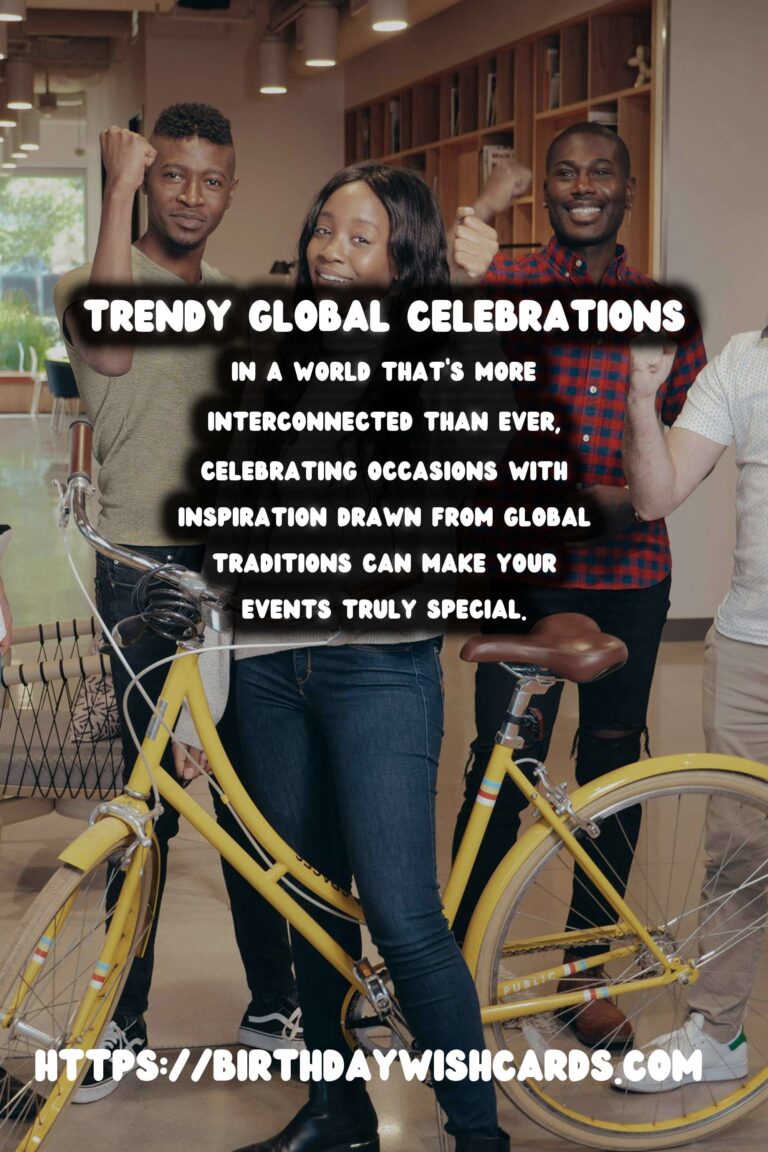Exploring Independence Day in Different Countries
Exploring Independence Day in Different Countries
Independence Day is a significant event celebrated in various countries worldwide, each with unique traditions and histories. In this article, we will delve into the meanings, celebrations, and customs associated with Independence Day across different nations.
The United States: A Day of Patriotism
In the United States, Independence Day is celebrated on July 4th, commemorating the Declaration of Independence in 1776. It is a day filled with fireworks, parades, picnics, and a strong sense of national pride. People gather with family and friends to enjoy barbecues and watch fireworks displays lighting up the night sky.
The celebration typically involves various activities, including:
- Parades featuring marching bands and floats
- Fireworks shows in parks and at public events
- Community gatherings and festivals
- Barbecues and outdoor activities
India: A Celebration of Freedom
India celebrates its Independence Day on August 15th, marking the end of British rule in 1947. The day begins with flag hoisting ceremonies across the country, followed by cultural programs and parades showcasing India’s diverse culture. In the capital city, New Delhi, the Prime Minister raises the national flag at the Red Fort, giving a speech each year to commemorate this historic day.
Key aspects of Indian Independence Day include:
- Flag hoisting ceremonies at schools, government buildings, and public spaces
- Cultural performances highlighting India’s rich heritage
- Patriotic songs and poetry recitation
- Community service and volunteerism
Mexico: A Night of Celebration
Mexico’s Independence Day is celebrated on September 16th, marking the start of the War of Independence from Spanish rule in 1810. The celebrations begin on the night of September 15th, where the President rings the bell from the Palacio Nacional and delivers the ‘Grito de Dolores,’ a speech honoring the heroes of the independence movement.
Common traditions include:
- Nighttime festivities with music and dancing
- Fireworks displays
- Traditional foods such as pozole and chiles en nogada
- Public gatherings and parades
Brazil: A Colorful Parade
Brazil celebrates its Independence Day on September 7th. The day commemorates the declaration of independence from Portugal in 1822. The major celebration takes place in the capital city of Brasília, where the President leads a parade with military bands, cultural performances, and a display of national pride.
Key elements of Brazil’s Independence Day celebration include:
- Military parades showcasing Brazil’s armed forces
- Cultural festivals with music, dance, and food
- Community events in towns and cities
- Fireworks and family gatherings
South Africa: A Day of Freedom
In South Africa, Freedom Day is celebrated on April 27th, honoring the first post-apartheid elections held in 1994. This day is marked by reflection on the struggles faced during apartheid and celebrations of the country’s democratic achievements. Events include cultural festivities, speeches, and community service initiatives.
Significant features of Freedom Day include:
- Flag-raising ceremonies across the country
- Cultural performances highlighting South African heritage
- Public speeches by leaders and activists
- Community service projects aimed at uplifting communities
Canada: Celebrating Diversity
Canada Day, celebrated on July 1st, marks the confederation of Canada in 1867. It’s a day filled with festivities across the nation, celebrating the country’s diversity and multiculturalism. Major cities host fireworks, concerts, parades, and community events to honor Canadian heritage.
Highlights of Canada Day celebrations include:
- Fireworks displays in major cities like Ottawa
- Parades featuring multicultural representations
- Community festivals with food and music
- Public speeches by officials and artists
Australia: A Day of Outdoor Fun
Australia Day, held on January 26th, marks the arrival of the First Fleet at Port Jackson in 1788. It’s a day of national pride, celebrated with barbecues, fireworks, and community events. Australians from all backgrounds come together to celebrate what it means to live in Australia.
Notable aspects of Australia Day include:
- Fireworks and music festivals in cities
- Community barbecues and picnics
- Public ceremonies honoring citizenship and community
- Reconciliation events acknowledging Indigenous histories
Conclusion: A Global Celebration of Independence
Independence Day is an important occasion celebrated worldwide, embodying the spirit of freedom and national pride. From the fireworks of the United States to the cultural festivities in India, each country’s unique traditions reflect their histories and values. Understanding these diverse celebrations deepens our appreciation for the sacrifices made and the freedoms we enjoy today.
Independence Day is a significant event celebrated in various countries worldwide.
Each country has its unique traditions and histories.

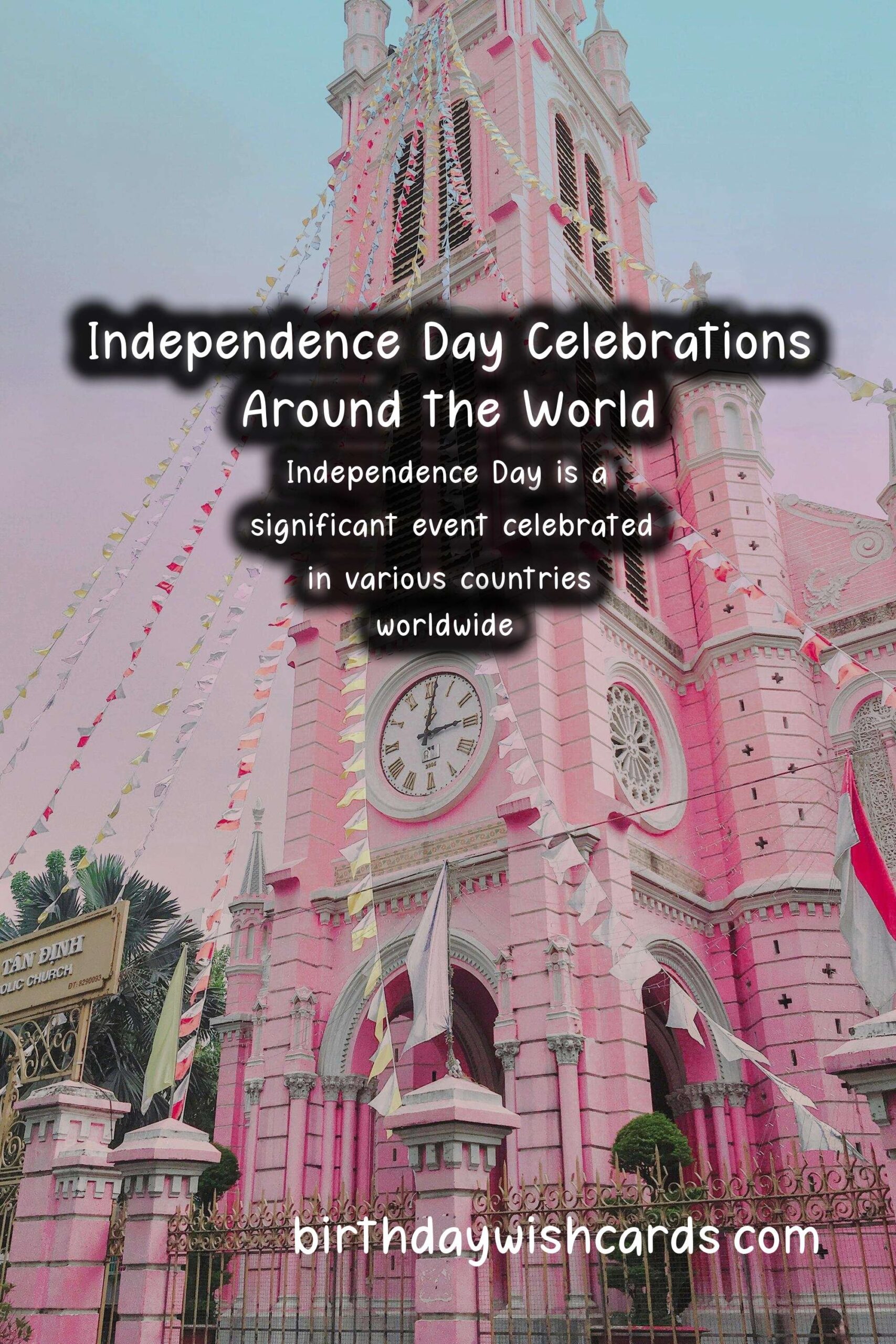

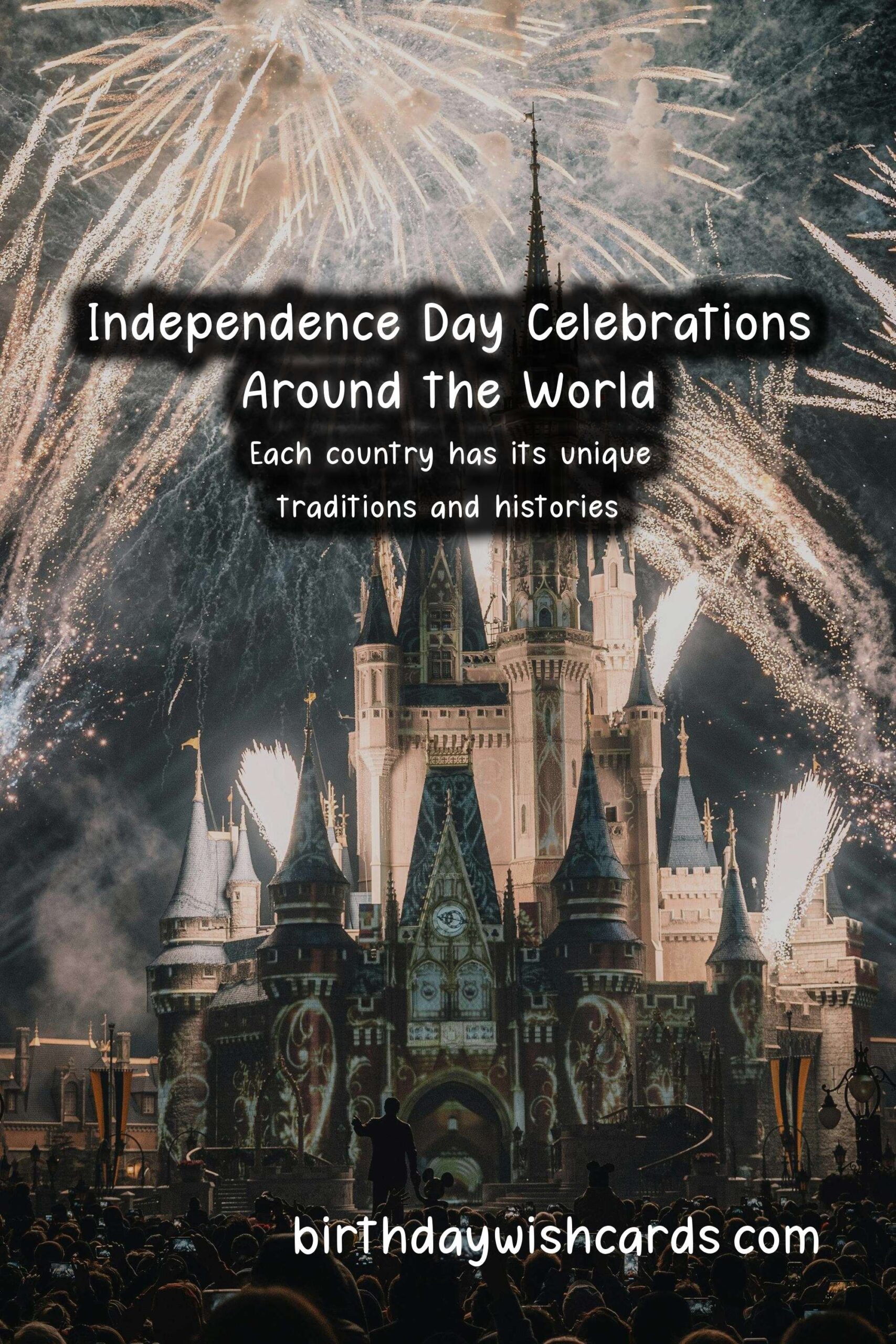
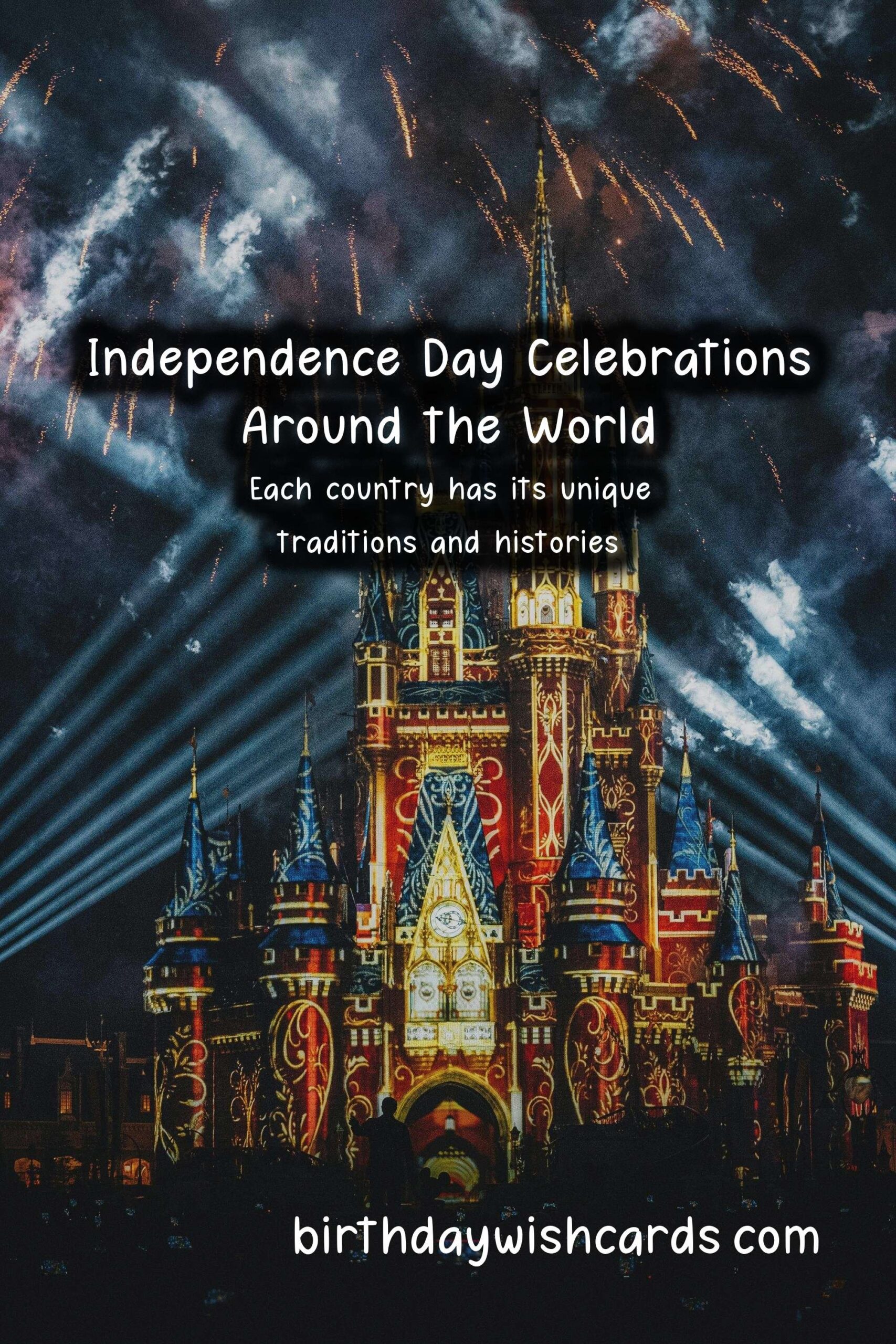
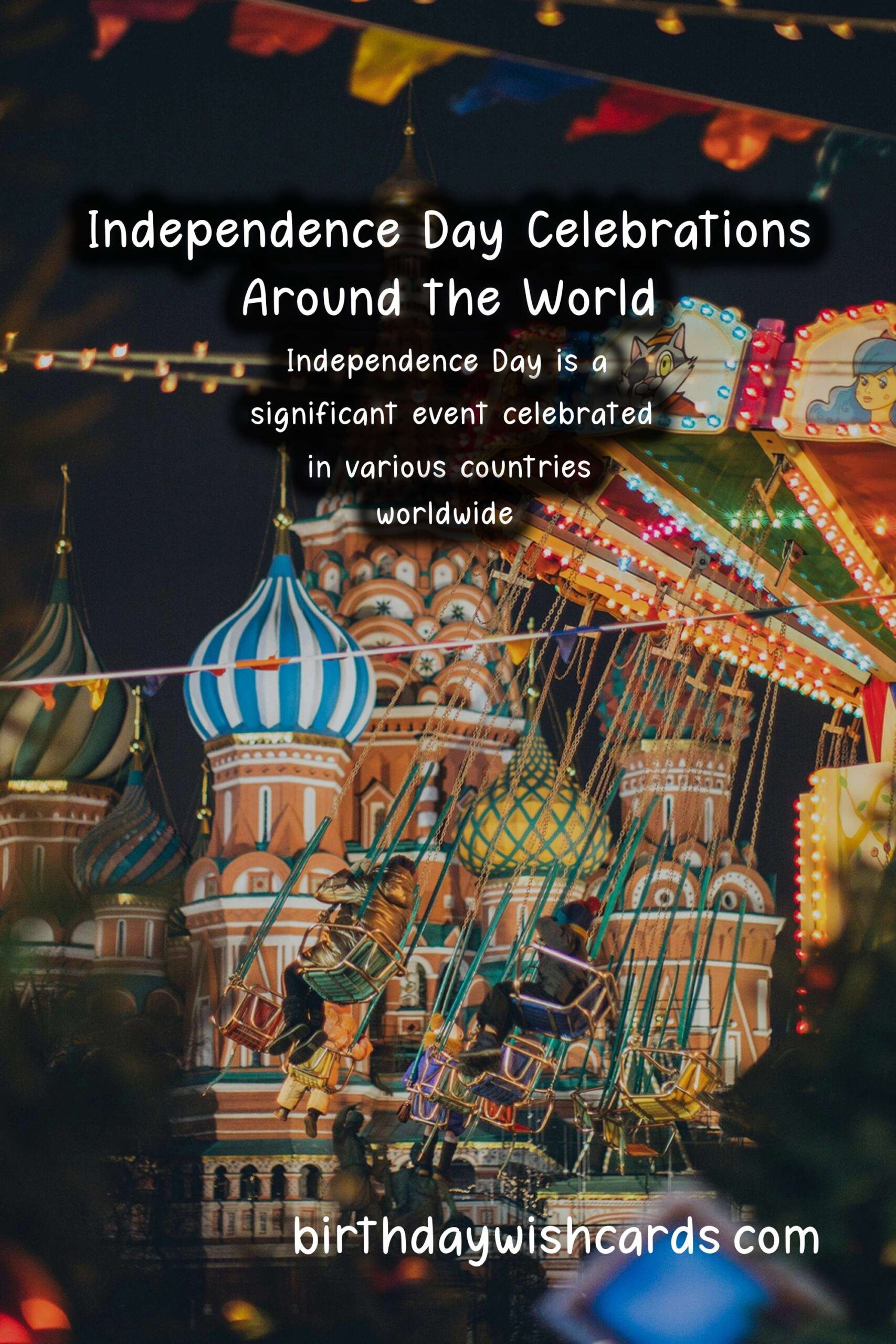




#IndependenceDay #CulturalCelebration



